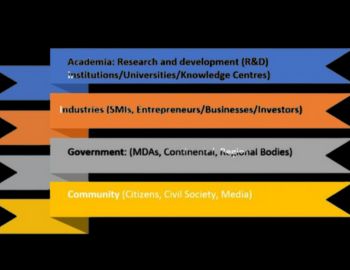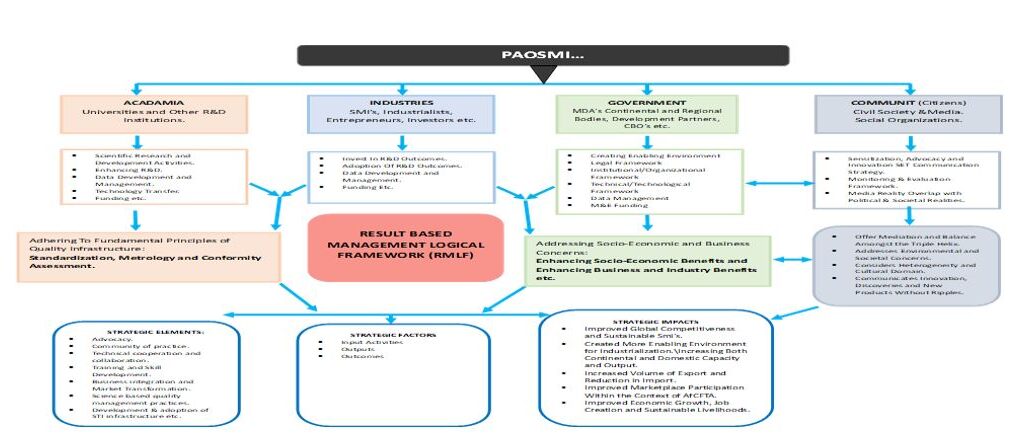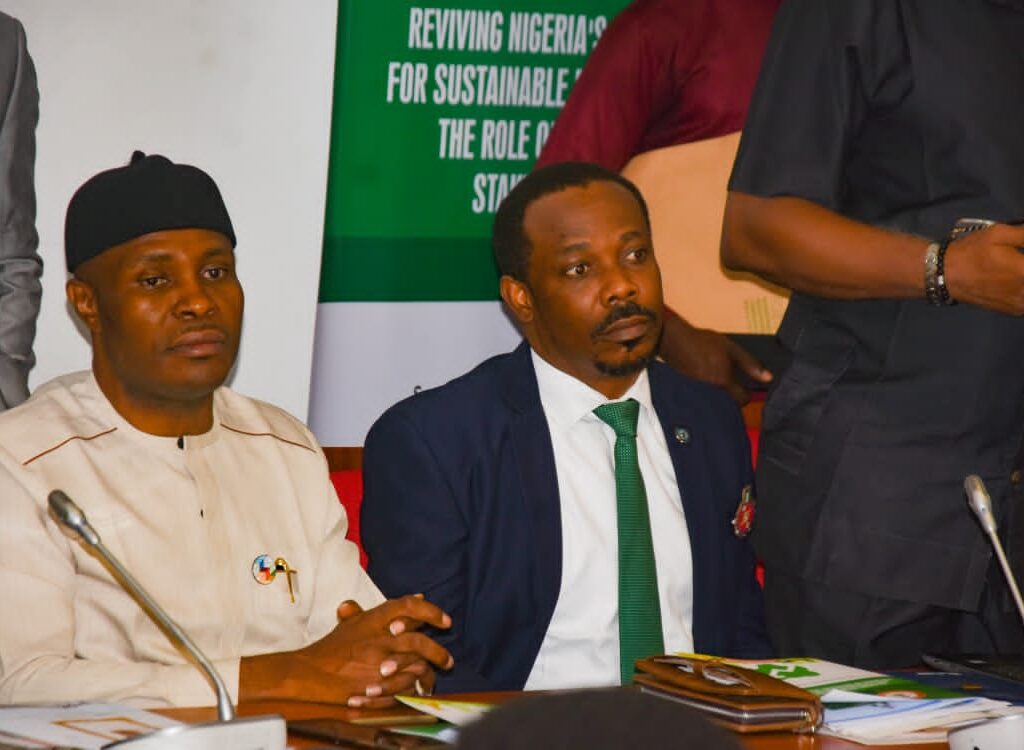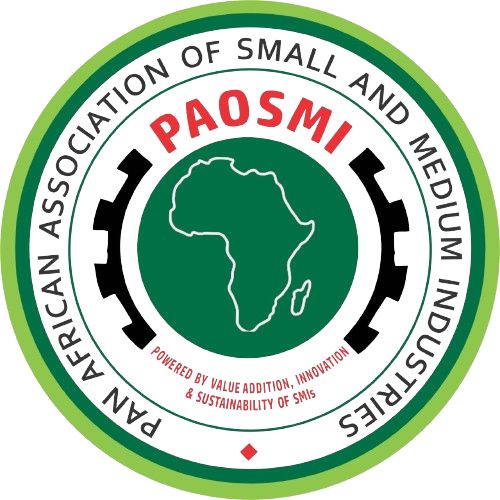Our Model
The Model is designed to capture all the critical stakeholders with synergised responsibility in assisting SMIs in Africa industrialization

The approach to drive African Industrialisation and global competitiveness ranking through the Development and promotion of Small and Medium Industries (SMIs) is a strategy that is standing on an expanded triple helix into a quadruple helix and aims at bringing the SMIs in Africa under one platform that will help in supporting and improving African SMIs over time and make them competitive in a sustainable manner. The Model is designed to capture all the critical stakeholders with synergised responsibility in assisting SMIs in Africa industrialization and making them globally competitive by adopting strategies backed by innovativeness and proper capacity development and funding options to enhance productivity (Figure Below)

In addition to identifying the four critical stakeholders made up of Academia, Industries, Government and the Community, the model assigned broad areas of responsibilities highlighted below. It also emphasizes the need for links and synergy amongst these key collaborators.
- Academia: Research and development (R&D) Institutions/Universities/Knowledge Centres) – They are expected in the collaboration to have the responsibility research and development activities leading to outputs that are commercial sable or to be taken for enterprise and business, enhanced R&D, incubation, Development and management, technology transfer, capacity development and funding, etc.
- Industries (SMIs, Entrepreneurs/Businesses/Investors) – They are expected to invest in R&D outcomes, carry out business investments, support infrastructure development, job and wealth creation, funding, etc.
- Government: Ministry Department Agencies (MDAs), Continental, Regional bodies, Development Partners) – is expected to create enabling environment, put in place infrastructure, legal and policy framework Data Management, Training and Capacity building, Monitoring & Evaluation, and funding/financing.
- Community (Citizens, Civil Society, Media and Social Organisation) – these are key collaborators with the responsibility to carry out awareness creation, sensitization, advocacy, Science, Technology and Innovation communication using information, education and communication (IE&C) materials, social mobilisation, media- based democracy, monitoring, offer mediation and balance, as well as monitoring and evaluation. They also balance heterogeneity and culture.

Another vital component of the model highlights the establishment of Quality Infrastructure resulting from collaboration and cooperation amongst the four pillars of the Helix. The Quality Infrastructure is characterised by strict adherence to Standardisation, Conformity Assessment and Metrology. There will also be great policy and legal support as well as capacity development, including Seminars, workshops, and conferences.
In addition, the Model will carter for strict adherence to Results-based Management Logical Framework (RMLF) in the implementation of the various recommendations of this strategy. RMLF is a matrix that places every strategic element – Advocacy, community engagement, technical corporation, Infrastructural Development, Human Resource Development, Data Development and Management, ICT and Technological issues such as digitization which is now the much sought out pathway and game changer for SMI’s ecosystem transformation.
The Model lays serious emphasis on the need for government to provide conducive environment and facilitate the Ease of Doing Business, especially, ensuring the input of appropriate Legal, Policy, Institutional and other frameworks. These frameworks must be subjected to RMLF in their formulation.
What we do/Services
Facilitate and support the creation of a conducive, and thriving small and medium-Industries (SMI) ecosystem in the Continent Via Promoting Easy of doing business, Policy advocacy, Establishment of viable start-up hubs, incubation centers, cluster development initiatives and industrial parks.
Create linkages and facilitate opportunities for Access to raw material, finance, and market. Technology transfer and R&D Commercialization Via conferences and workshops and Networking activities and engagements.
Capacity Building & Training by Facilitating and Implementing robust Industrial Enterprise Development Programs (IED) via training to small and medium industries (SMIs), skill-up grade and Scale for improved productivity.
Advocacy, Policy Analysis & Influence: We are the bridge between SMIs and the decision-makers who shape their environment. Together, let’s make the voice of African SMIs heard, and pave the way for a prosperous future for all.
Provide end-to-end consultancy services in line with subsequent generational industrial revolutions.
Promote and technical support to Improved traditional methods of Industrial business by leveraging enormous power of Science, Technology and Innovation and supporting National Quality Infrastructure (NQI) to build quality and Standards of products and services.
Facilitate trade, Investment and Promoting Made in Africa Product through market development/Access.
